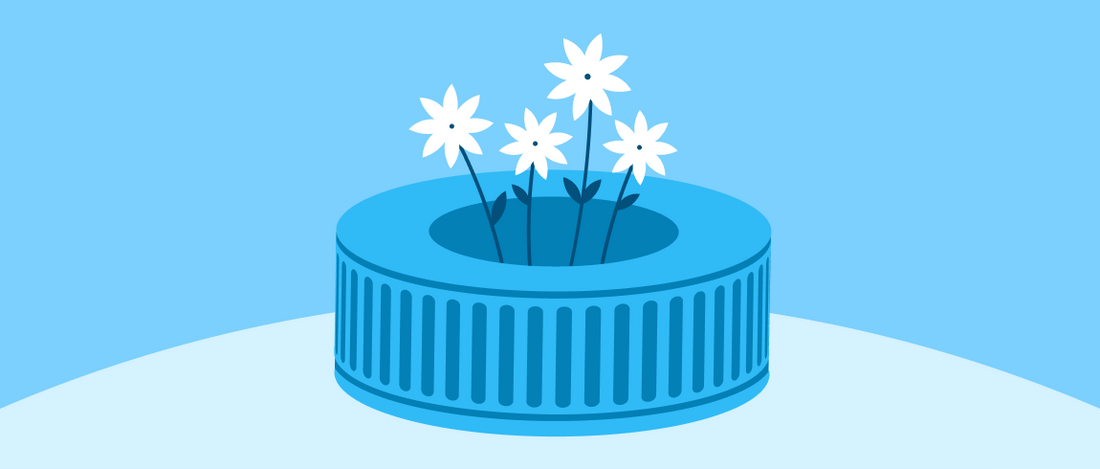We all know we’re supposed to change our filter at some point to ensure good health, but what does it mean, and what will happen if we skip it? Replacing filters in air purifiers can pose a significant health compromise, not just because of what it fails to do (i.e., clean your air) but also what happens if not replaced.
What is a HEPA filter?
A HEPA filter, or "high-efficiency particulate air filter,” is a type of pleated mechanical air filter that can theoretically remove at least 99.97% of dust, pollen, mold, bacteria, and any airborne particles with a size of 0.3 microns (µm). Our HEPA Ray Filter is a unique patent exclusive to Aura Air devices. It features a 99.99% success rate in removing harmful particles, including SARS-CoV-2 and Influenza A, the primary cause of seasonal flu.
Reduced Effectiveness
So, what happens when you don’t replace your filter on time? Let’s start with the simplest consequence; the filter will be clogged and unable to capture and clean harmful airborne particles. Filter efficiency, airflow, and the overall filtration performance of an air purifier drop significantly when the filter media is clogged up from prolonged use.
Your air quality will be negatively affected by a 50% decrease in filtration levels after six months of use. Vacuuming will result in the fibers coming loose, widening the gaps in between, and allowing more particles to flow through.

Posing New Health Risks
Changing your filter is essential in preventing health threats in more ways than one. If your filter is not changed in time, it will be clogged with micro-organisms like bacteria, viruses, and mold particles. It won’t be able to clean new ones and only capture them on the filter’s surface.
As a result, the filter can serve as a fertile breeding ground for new mold and bacteria, especially if the air purifier is not used in a while. These factors can do the opposite of the filter’s main purpose and compromise your health on a daily basis with illnesses such as breathing problems, allergies, aspergillosis, and more.
Compromised Sustainability
The last reason might not harm your health directly in the short term, but it will in the long run, in addition to hurting the environment and your bank account. A clogged filter makes the whole air management system work less effectively. Once the system can’t function at its best, the air has trouble moving through it.
With fewer air exchanges per hour, the system works harder to provide clean air, consuming more electricity and increasing your utility bills.
Of course, being energy efficient is also an environmental concern as global efforts are being made to lower greenhouse gas (GHG) emissions and other pollutants as well as decrease water use to fight climate change and stop global warming. This aspect might affect your long-term goals of maintaining good air quality, but it's critical to any business leader with a solid ESG plan.
When do I need to change my HEPA Ray Filter?
The EPA recommends sticking to the manufacturer’s recommendations, with most brands typically recommending a filter replacement every 60 to 90 days. Aura Air has an exceptionally long-lasting filter, so you’ll need to change it only every six months with an easy replacement process that only takes a few minutes.
In conclusion, changing your filters is important for many reasons, including health, finances, and the environment. Seeing what’s in your air might be impossible at times, but ensuring it is clean and healthy is much easier with smart decision-making and routine maintenance.



